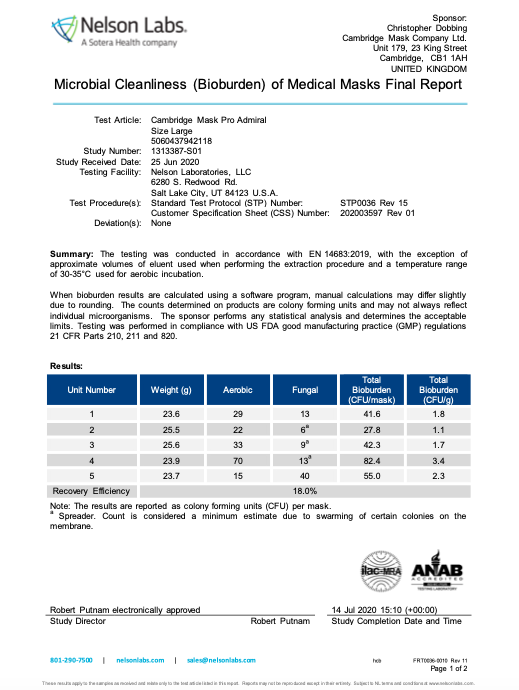What is bioburden, and why is it important for masks?
Bioburden refers to the number of bacteria present on a surface that hasn't been sterilized. In the context of masks, bioburden testing, also known as microbial limit or microbial cleanliness testing, is essential for ensuring quality control. This test is primarily concerned with bacteria since viruses cannot survive long enough outside a host to be present on a medical product. Essentially, bioburden testing measures how clean the mask is when it is packaged and delivered to you. A lower bioburden indicates a cleaner mask. For example, our PRO mask has an average bioburden of 2.06 CFU/g.
How is bioburden calculated?
Bioburden is determined by counting the number of colony-forming units (CFUs)—clusters of two or more bacteria—on a newly opened mask. This number is then divided by the weight of the mask in grams. CFUs are used instead of individual bacteria because bacteria are microscopic and often group together. The FDA requires that medical masks have a bioburden of less than 30 CFUs per gram.
If you have further question, please contact us by email at info@cambridgemask.com or Chat button on our sites to connect with our Customer Service Team.

